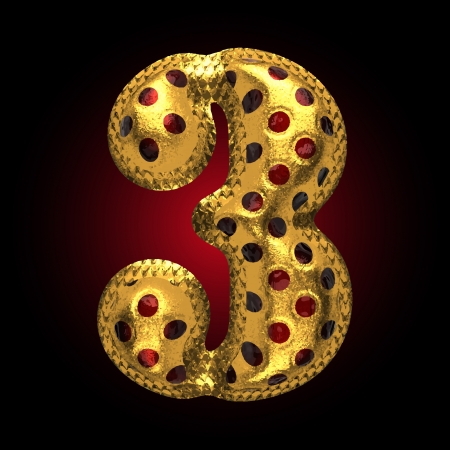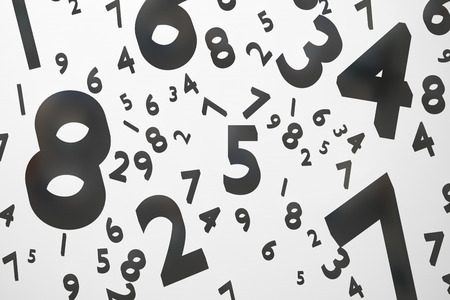Introduction to Psychic and Spiritual Readings in the UK
The United Kingdom has long been a vibrant hub for seekers of psychic insight and spiritual wisdom, with its rich tapestry of folklore, mysticism, and a uniquely British approach to matters of the spirit. From the windswept moors of Yorkshire to bustling London high streets, psychic and spiritual readings have woven themselves into the fabric of British culture—sometimes as a source of comfort, at other times as a subject of curiosity or scepticism. Attitudes towards psychics in the UK are shaped by both historical legacies and contemporary trends: while some view these practices through the lens of centuries-old traditions such as Druidry, Spiritualism, or even Arthurian legend, others may approach them with a distinctly British blend of open-mindedness and healthy scepticism. Legal frameworks also play a role, with regulations such as the Consumer Protection from Unfair Trading Regulations 2008 ensuring that readings are delivered honestly and without misleading claims. This landscape is further coloured by an array of practitioners—clairvoyants in Brighton, tarot readers in Edinburgh, mediums in Liverpool—each bringing their own techniques and philosophies to a diverse clientele. As we delve deeper into this comprehensive guide, well explore how these cultural nuances and legal standards influence the experience of seeking spiritual guidance across the UK.
2. Traditional British Psychic Practices
When it comes to psychic and spiritual readings in the UK, many classic practices have deep roots in British culture and history. These traditions—ranging from clairvoyance to palmistry and tea leaf reading—offer not just insight into personal destinies but also a window into the nation’s unique approach to mysticism.
Clairvoyance: The Gift of Second Sight
Clairvoyance, often referred to as “second sight,” has long been woven into the fabric of British folklore. Especially prominent in Scotland, tales of individuals with uncanny predictive abilities date back centuries. Traditionally, clairvoyants claim to see beyond the physical realm—whether through visions, dreams, or spontaneous flashes of insight. Today, many Brits still consult clairvoyants for guidance on everything from relationships to career moves, blending old-world mystique with modern-day concerns.
Palmistry: Reading Your Fate in Your Hands
Palmistry, or chiromancy, found its way into British society during the Victorian era—a period fascinated by all things esoteric. Practitioners interpret the lines, shapes, and mounts of the hand to uncover clues about an individual’s character and future. While some view palmistry as light-hearted entertainment at fairs and parties, others take it more seriously, seeing it as a genuine tool for self-discovery.
Tea Leaf Reading: A Quintessentially British Art
No discussion of British psychic traditions would be complete without mentioning tea leaf reading, or tasseography. Born from the country’s love affair with tea, this practice involves interpreting patterns left by tea leaves at the bottom of a cup. Far from being a mere parlour trick, tea leaf reading has held a place in both humble kitchens and grand parlours alike. It remains popular today among those seeking guidance in a delightfully traditional fashion.
Comparison of Traditional UK Psychic Practices
| Practice | Origins | Main Tools | Contemporary Relevance |
|---|---|---|---|
| Clairvoyance | Ancient Celtic & Scottish Folklore | Visions/Dreams/Intuition | Personal Guidance & Life Decisions |
| Palmistry | Victorian Era Popularisation | Hand Lines & Shapes | Self-Insight & Entertainment |
| Tea Leaf Reading | 18th Century Britain | Tea Leaves & Teacups | Cultural Tradition & Personal Reflection |
A Living Heritage in Modern Britain
Despite rapid social change and technological advances, these traditional psychic practices continue to thrive across the UK. Whether you’re seeking profound answers or simply curious about age-old customs, exploring these methods is a fascinating journey into Britain’s rich spiritual heritage—where past wisdom meets present-day curiosity.

3. Modern Approaches: Tarot, Mediumship, and Beyond
Across the UK, psychic and spiritual practices have evolved with the times, blending traditional wisdom with contemporary flair. Among the most prevalent modern approaches is tarot reading, which has become a staple both at mystical fairs in Brighton and online platforms alike. Tarot’s enduring popularity lies in its visual symbolism and the way readers weave personal stories from archetypal images—a style beloved by both curious newcomers and seasoned spiritual seekers.
Mediumship, another highly sought-after service, reflects Britain’s rich history of Spiritualism dating back to Victorian parlours. Modern mediums now connect people with loved ones who’ve passed on not just through face-to-face sittings but also via video calls, making this once-exclusive experience accessible from Cornwall to the Scottish Highlands. The resonance of mediumship in British culture—think of events at local town halls or televised demonstrations—speaks to a national fascination with life’s mysteries beyond the veil.
Expanding beyond tarot and mediumship, practices such as rune casting have found a niche following among those intrigued by Norse heritage and ancient symbolism. While perhaps less mainstream than tarot, runes are gaining ground thanks to their tactile nature and the sense of rootedness they offer in a fast-changing world.
Digital innovation is arguably the biggest game-changer for psychics in the UK today. From mobile apps offering daily card pulls to live-streamed readings on social media, technology has democratised access to spiritual insights. No longer confined to high street shops or coastal retreats, today’s seekers can connect instantly with readers nationwide—or even globally—at the tap of a screen.
This digital shift has also fostered new community spaces. Online forums and virtual circles allow individuals from diverse backgrounds to share experiences and recommendations, blending old-school British curiosity with a very 21st-century openness. In short, whether you’re seeking guidance through cards, spirit messages, or runic wisdom, the UK scene offers an ever-expanding array of options—each shaped by tradition yet thoroughly modern in their approach.
4. Cultural Influences and Regional Variations
The psychic landscape of the UK is deeply entwined with its rich cultural tapestry, where centuries-old folklore, local legends, and regional identity leave a distinct imprint on spiritual practices. From mystical moors to ancient Celtic rituals, each corner of the British Isles has fostered unique traditions that shape the ways in which psychics and spiritual readers operate today.
Folklore Roots Across the Four Nations
England, Scotland, Wales, and Northern Ireland each boast storied pasts steeped in myth and legend—think Arthurian tales in Cornwall or the fae folk of the Scottish Highlands. These narratives continue to influence not only popular beliefs but also the methods and specialisations of local psychics. For example, Scottish seers often draw upon ancestral “second sight,” while Welsh readers may weave Druidic wisdom into their sessions.
Regional Psychic Traditions at a Glance
| Region | Key Folklore Influence | Common Psychic Practices |
|---|---|---|
| England | Arthurian Legends, Folk Healing | Palmistry, Tarot Reading, Mediumship |
| Scotland | The Second Sight, Highland Fae Lore | Scrying, Clairvoyance, Spirit Communication |
| Wales | Druidic Mysticism, Fairy Lore (Tylwyth Teg) | Aura Reading, Rune Casting, Nature-Based Divination |
| Northern Ireland | Celtic Mythology, Banshee Legends | Dream Interpretation, Ancestral Channeling, Omen Reading |
The Role of Regional Identity in Shaping Practice
Beyond mythic origins, local customs and even dialect can influence how a psychic reader approaches their craft. In rural communities across Yorkshire or Snowdonia, for instance, there’s often a preference for one-on-one consultations rooted in oral storytelling. Urban centres like London or Edinburgh may see a fusion of global influences alongside traditional British methods.
Modern Adaptations and Enduring Traditions
While technology enables access to psychics nationwide (and beyond), many practitioners remain fiercely loyal to their regional roots. Whether it’s a Cornish hedge witch drawing power from ancient stone circles or a Belfast medium referencing Celtic symbolism, these cultural threads add richness and depth to the UK’s psychic scene—making every consultation as unique as the land itself.
5. How to Choose a Psychic or Spiritual Reader in the UK
Practical Guidance for Finding Reputable Readers
Navigating the vibrant world of psychics and spiritual readers in the UK can be both exciting and daunting, especially given the sheer variety available. To begin with, word-of-mouth recommendations remain golden in British culture; ask friends or community members if they have any trusted practitioners. Online reviews on platforms like Trustpilot or local Facebook groups can also provide valuable insight into a reader’s reputation. It’s wise to look for those who are transparent about their experience, methods, and pricing—upfront honesty is often a hallmark of professionalism within the UK psychic community.
Understanding British Etiquette
The UK is renowned for its subtle social codes and understated manners, and these extend into the realm of psychic readings as well. Arrive promptly for your session—punctuality is highly valued. It’s customary to address readers formally unless invited otherwise, using titles such as “Mr”, “Mrs”, or “Ms”. Respecting personal boundaries and avoiding overly intrusive questions about other clients is expected. If you’re not satisfied with your reading, it’s polite to express this calmly rather than confrontationally, perhaps by saying, “Thank you for your time; I’m not sure this resonates with me.”
Spotting Potential Pitfalls
Unfortunately, as with any service industry, there are less scrupulous individuals operating within the psychic scene. In the UK, reputable readers will never pressure you into repeated sessions or claim to remove curses—for substantial fees. Be wary of anyone who makes extravagant promises or asks for large sums upfront. The use of disclaimers (“for entertainment purposes only”) is common practice and required by law, so steer clear of those who make absolute guarantees about outcomes or offer medical advice. Always trust your instincts: if something feels off, it’s perfectly acceptable to walk away.
A Note on Privacy and Data Protection
The UK has robust data protection laws (GDPR), so legitimate readers should handle your personal information with care. Don’t hesitate to ask how your details will be stored and used—a reputable psychic will be happy to reassure you.
Summary
Choosing a psychic or spiritual reader in the UK involves more than just picking a name at random; it’s about blending practical research with cultural awareness. By tapping into trusted recommendations, observing British etiquette, remaining alert to red flags, and safeguarding your privacy, you’ll be well-equipped to find a reader who aligns with your needs—while enjoying an experience that feels truly insightful and authentically British.
6. Ethical Considerations and Regulatory Guidelines
Navigating the world of psychics and spiritual readers in the UK goes beyond simply choosing a practitioner; it’s essential to understand the ethical standards, legal frameworks, and protective measures in place for both clients and professionals. Unlike some countries, the UK does not have a single, overarching body regulating psychic or spiritual work. However, several codes of conduct, consumer protection laws, and voluntary associations guide practice and protect those seeking spiritual insight.
Legal Protections for Clients
The most significant legal safeguard is the Consumer Protection from Unfair Trading Regulations 2008 (CPRs), which replaced the historic Fraudulent Mediums Act 1951. Under these regulations, practitioners must avoid misleading claims about their abilities or outcomes. Services should be offered as ‘for entertainment purposes only’ unless tangible evidence can be provided for specific claims. This protects clients from being exploited or deceived by false promises.
Industry Standards and Voluntary Associations
While there’s no formal licensing system, many reputable psychics and spiritual readers belong to professional bodies such as The Spiritualists National Union (SNU) or The British Astrological & Psychic Society (BAPS). These organisations promote best practices by encouraging members to adhere to strict ethical codes—emphasising honesty, confidentiality, and respect for client autonomy. If issues arise, these bodies also offer mediation and complaints procedures.
Ethical Codes: What Should You Expect?
Practitioners are expected to maintain high standards of integrity: this includes clear communication about the nature of their services, transparency regarding fees, and sensitivity towards vulnerable individuals. Ethical readers avoid exploiting sensitive situations—such as grief or relationship breakdowns—and never pressure clients into repeat sessions or additional spending. Many also outline boundaries about health, legal, or financial advice, referring clients to qualified professionals where appropriate.
In summary, while regulation remains somewhat decentralised in the UK, there are robust protections and ethical expectations guiding both practitioners and clients. By understanding these frameworks, you can make informed choices and enjoy greater peace of mind when engaging with psychics or spiritual readers across Britain.
7. Conclusion and Future Trends
The landscape of psychics and spiritual readers in the UK is both rich in tradition and alive with change. Over the years, I’ve observed how British culture has woven together its own home-grown psychic traditions—like tea leaf reading and mediumship—with influences from around the globe, including Tarot from continental Europe, Reiki from Japan, and shamanic practices from indigenous cultures. This cross-pollination has helped shape a uniquely British psychic scene that values both authenticity and openness to new ideas.
Today’s seekers are more discerning, often blending scepticism with curiosity. The rise of digital platforms has made readings more accessible than ever, connecting people across cities and even continents. It’s not uncommon now for someone in Manchester to consult a clairvoyant in London via video call, or for a Brighton-based tarot reader to draw inspiration from Celtic and Eastern philosophies alike.
Looking ahead, several trends are likely to define the future of psychic services in the UK. Firstly, technological integration will continue to expand; AI-driven horoscopes and virtual reality meditation spaces are already emerging. Secondly, there’s a growing emphasis on ethical practice and transparency—clients want to know their readers are credible and compassionate. Lastly, the movement towards holistic wellness means more practitioners will offer spiritual guidance alongside life coaching, mindfulness, or alternative therapies.
In my experience, what truly sets the UK apart is its ability to honour old traditions while embracing innovation. As more people seek meaning in an uncertain world, the role of psychics and spiritual readers will remain relevant—adapting, evolving, and continually reshaped by diverse cultural threads that make up modern Britain.


